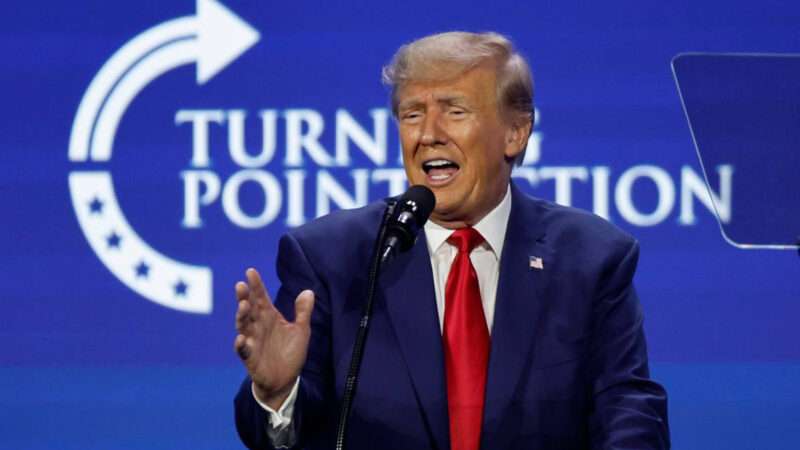

Earlier today, Lawfare published my article on “Section Disqualifications for Democracy Preservation.” Here is an excerpt:
There is an ongoing debate over whether Donald Trump must be disqualified from holding the presidency—or any public office—under Section 3 of the 14th Amendment. Enacted in the aftermath of the Civil War, Section 3 states that “No person” can hold any state or federal office if they had previously held state or federal public office in the United States and then “engaged in insurrection or rebellion against the same, or given aid or comfort to the enemies thereof.”
In a much-discussed new article, prominent conservative originalist legal scholars William Baude and Michael Stokes Paulsen argue that this rule is broad enough to bar Trump because of his efforts to overturn the result of the 2020 election and his role in instigating the Jan. 6, 2021, attack on the Capitol….
Part of the debate triggered by the article focuses on whether Baude and Paulsen have correctly interpreted key terms such as “insurrection” and “aid or comfort.” But other critics contend that disqualifying Trump is, as Stanford Law Professor Michael McConnell puts it, likely to have “profoundly anti-democratic” consequences, depriving voters of the opportunity to vote for the candidate of their choice…..
If Baude and Paulsen’s analysis of Section 3 is otherwise sound, concerns about democracy should not prevent officials from using it to disqualify Trump and others implicated in the events leading up to Jan. 6. Democracies have good reason to disqualify would-be officeholders whose track records indicate they endanger liberal democratic values. There is plenty of relevant precedent for disqualification for purposes of democratic preservation in both the United States and other democracies, most notably “lustration” laws barring officeholding by former functionaries of communist dictatorships in the newly democratic nations of Eastern Europe. While slippery-slope concerns should be taken seriously, there are safeguards against them, particularly in the form of judicial review.
There is, however, one genuine serious downside of applying Section 3: Some insurrections are actually morally defensible. Disqualifying those who participate in rebellions fighting for a just cause is problematic. But it may be the price we have to pay for Section 3’s failure to distinguish between just and unjust rebellions against authority. Some number of unjust disqualifications may need to be accepted in order to reduce the greater menace of allowing would-be authoritarians access to the most powerful office in the land.
The rest of the article develops these points in more detail and addresses a number of potential objections.
The post My New Lawfare Article on Trump and the Use of Section 3 Disqualification as a Tool to Protect Democracy Against itself appeared first on Reason.com.
from Latest https://ift.tt/YjxdKWp
via IFTTT